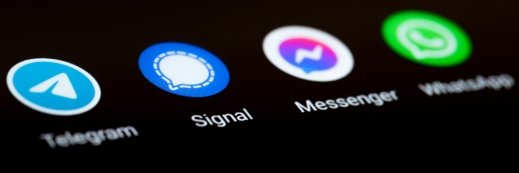
alexskopje - stock.adobe.com
Dutch prosecutor ordered to give evidence on EncroChat hack
Netherlands court rules that a public prosecutor should give evidence about the role of the Dutch in the EncroChat cryptophone hack which has led to arrests of organised gangs worldwide
A Dutch court has ruled that a public prosecutor involved in the investigation into the EncroChat encrypted phone network should give evidence on the operation.
The decision is the first time an official has been required to explain the role of the Netherlands in the operation to hack EncroChat, which has led to arrests worldwide of hundreds of members of organised crime groups.
The Dutch Public Prosecution Service’s public position is that it was not involved in the development or deployment of a “software implant” used by the French Gendarmerie to harvest 120 million messages from the phones, which were largely used by organised criminal groups.
Dutch prosecutors argue that it is not up to the Dutch courts to assess the legality of the French police operation to intercept messages from EncroChat, which were subsequently shared with the Netherlands, the UK, Sweden and other countries.
But the claim has been questioned by defence lawyers in the Netherlands, who point to evidence from the UK and elsewhere that suggests the Dutch and French Gendarmerie worked closely together on the operation.
A court in Den Bosch ruled last week that a public prosecutor involved in the Dutch investigation into EncroChat, codenamed 26Lemont, should give evidence on the Dutch judiciary’s role in the operation with the French.
Impossible to conduct effective defence
Defence lawyers representing clients in a drug trial had argued that it was impossible for them to conduct an effective defence because the Public Prosecution Service had refused to provide them with documents they requested that shed light on the hacking operation.
They claimed that the French operation against the EncroChat phone network may be in breach of Article 8 of the European Convention on Human Rights, which puts boundaries on state interference in the privacy of citizens.
The lawyers also argued that the operation against EncroChat may be in breach of Article 6 of the convention, which provides for the right to a fair trial.
The East Brabant District Court did not accept there was evidence that the EncroChat operation breached European Convention rights, but it ordered the Public Prosecution Service to testify about the hacking operation for the first time.
“The court is of the opinion that in the light of a fair process, the defence must be given the opportunity to exercise more direct control [over the legal process],” it said.
The court also asked the Public Prosecution Service to explain in writing why legal authorisation for the hacking operation cannot be disclosed in court proceedings.
Dispute over the target of investigation
Defence lawyers are also questioning the legal basis of the interception operation.
The Public Prosecution Service argued that the interception operation was primarily targeted against the operators of the EncroChat network.
Defence lawyers argue that documents from UK court hearings confirm that the target of the hacking operation was, in reality, not the operators of EncroChat, but its users.

However, the court found that the UK documents were not in themselves incompatible with the prosecution arguments that the investigation focused on the operators of EncroChat.
The Dutch National Forensics Institute (NFI) was drawing up reports on the reliability of the content of intercepted messages from EncroChat, the court found.
It refused permission for defence lawyers to be provided with copies of data, files photographs and documents and messages obtained from EncroChat. But it said Dutch courts had already determined that lawyers can visit the NFI to inspect EncroChat datasets.
Dutch deny involvement in hacking
Defence lawyers in the Netherlands claim that the Dutch may have had a wider role in the EncroChat hacking operation than has so far been admitted, following disclosures in UK courts and elsewhere.
The Dutch public prosecutor wrote to prosecuting lawyers in the Netherlands in March accusing the UK of damaging confidence by disclosing information released to the UK through diplomatic channels.
It denied that it had any involvement in the development, deployment and legal authorisation of the French interception “implant”.
“It is true that the authorities have worked closely together,” the letter said. “This is to be expected in an international operation.”
However, this does not suggest that the Dutch Prosecution Service influenced the assessment by French judges that deployment of the interception tool was legal and proportionate, the letter argued. “With this letter, we expressly state that this was not the case,” it added.
Martin Egberts, the Netherlands’ national prosecutor for cyber crime, disclosed some details of the relationship between France and the Netherlands during an online seminar on 18 May 2021 hosted by the United Nations Office on Drugs and Crime.
He said the Dutch initiated an independent investigation into EncroChat after taking down an encrypted phone network, EnnetCom, used by criminal gangs in 2016.
“We decided to look at EncroChat as the next supplier of organised crime groups,” he said. “We saw that they mainly targeted criminal clients and that’s why we took a look into the company.
“We saw that the [EncroChat] servers were hosted in France, so we decided to ask France if they wanted to co-operate with us. And that is when we found out that France was already doing investigations into the same company. And we decided to work together. So from that moment on, we joined forces.”
The first formal co-ordination meeting between France and the Netherlands took place at Europol in April 2019. The two countries formed a joint investigation team 12 months later.
The use of EncroChat evidence faces legal challenges in several countries. A German court ruled that EncroChat evidence should not be used in criminal prosecutions in July, and a Swedish court found ambiguities in EncroChat evidence in May. Legal challenges are also under way in the UK and France.
Read more about EncroChat
- In a setback for police hacking operations, Berlin’s regional court has decided that intercepted data from the EncroChat phone network should not be used in criminal prosecutions.
- Swedish court has overturned a ruling to convict a 23-year-old man accused of illegal firearm possession based on evidence obtained from the EncroChat hack, raising questions about its reliability in Swedish courts.
- Defence lawyers claim that investigators had access to a “master encryption key” that allowed them to decrypt millions of messages from the EncroChat encrypted phone network.
- French lawyers claim that investigators are unlawfully withholding details of a cryptophone hacking operation in a case that could impact UK prosecutions.
- Lord David Anderson QC warned prosecutors that there were formidable arguments against the lawfulness of a police operation to infiltrate the encrypted phone network, EncroChat.
- French lawyers are challenging the legality of a French police operation to harvest tens of thousands of messages from the EncroChat encrypted phone network in a move that could overturn criminal prosecutions in the UK.
- The Dutch Public Prosecution Service claims Britain has damaged confidence by disclosing details of an international investigation into the EncroChat encrypted phone network to the courts.
- Lawyers claim that public interest immunity certificates may have been used to withhold information on UK intelligence agencies’ ability to decrypt encrypted communications.
- Court hearings precipitated by police cracking the EncroChat secure mobile phone network have been delayed after defence lawyers request further disclosures on police decryption capabilities.
- Appeal court finds ‘digital phone tapping’ admissible in criminal trials: On 6 February 2021, judges decided that, despite UK law prohibiting law enforcement agencies from using evidence obtained from interception in criminal trials, communications collected by French and Dutch police from EncroChat using software “implants” were admissible evidence in British courts.
- Belgian police raid 200 premises in drug operation linked to breach of encrypted phone network: On 9 March 2021, Belgian police raided 200 premises after another encrypted phone network with parallels to EncroChat, Sky ECC, was compromised, in what prosecutors described as one of the biggest police operations conducted in the country.
- Arrest warrants issued for Canadians behind Sky ECC cryptophone network used by organised crime: Following the international police operation to penetrate the Sky ECC network and harvest “hundreds of millions” of messages, a federal grand jury in the US indicted Sky Global’s Canadian CEO, Jean-François Eap, along with former phone distributor Thomas Herman, for racketeering and knowingly facilitating the import and distribution of illegal drugs through the sale of encrypted communications devices.
- Judges refuse EncroChat defendants’ appeal to Supreme Court: In early March, judges refused defendants leave to challenge the admissibility in UK courts of message communications collected by French cyber police from the encrypted phone network EncroChat. Computer forensic experts working on EncroChat cases said that decision should trigger a wider review of the “far-reaching effects” the legal decision by the Court of Appeal would have on the role of communications interception in future cases.
- UK courts face evidence ‘black hole’ over police EncroChat mass hacking: Forensic experts say that French investigators have refused to disclose how they downloaded millions of messages from the supposedly secure EncroChat cryptophone network used by organised criminals – leaving UK courts to grapple with a forensic ‘black hole’ of evidence.
- Cops take out encrypted comms to disrupt organised crime: In July 2020, after French and Dutch authorities had gained access to the encrypted EncroChat network, the NCA and its counterparts worked to disrupt the serious and organised criminal networks using the platform.
Read more on Endpoint security
-
![]()
French court ruling may lead to legal challenges over state Sky ECC and EncroChat phone hack
-
![]()
German court finds hacked EncroChat phone evidence inadmissible
-
![]()
WhatsApp and Signal messages at risk of surveillance following EncroChat ruling, court hears
-
![]()
Dutch Supreme Court approves use of EncroChat evidence








